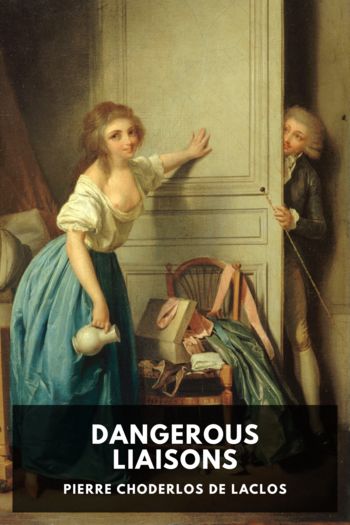The Disappearance of Stephanie Mailer: A gripping new thriller with a killer twist, Joël Dicker [general ebook reader .txt] 📗

- Author: Joël Dicker
Book online «The Disappearance of Stephanie Mailer: A gripping new thriller with a killer twist, Joël Dicker [general ebook reader .txt] 📗». Author Joël Dicker
The major called Jesse over, then announced so that our colleagues could all hear:
“Scott and Rosenberg, you’re in charge of this case.”
Jesse and I were determined not to make the major regret his decision. We spent the night in Orphea, putting together the first elements of the investigation. It was almost seven in the morning when I dropped Jesse outside his home in Queens. He suggested I come in and have a coffee and I accepted. We were exhausted, but much too excited by the case to sleep. In the kitchen, while Jesse made the coffee, I started making notes.
“Who disliked the mayor enough to kill him, and his wife and son, too?” I asked out loud, writing this question on a piece of paper that he stuck to the refrigerator.
“We have to question those closest to him,” Jesse said.
“What was the family doing at home on the opening night of the theater festival? They should have been at the Grand Theater. And what about those suitcases full of stuff in the car? It looked like they were about to leave.”
“You mean they were running away? But why?”
“That,” I said, “is what we have to find out.”
I stuck a second piece of paper on the fridge, on which he wrote: Did the mayor have enemies?
Natasha, woken by our voices, appeared in the doorway, still half asleep.
“What happened last night?” she said, cuddling up against Jesse.
“Four killings,” I said.
“‘Murders at the theater festival’?” Natasha read on the fridge door before she opened it. “Sounds like a mystery novel.”
“It could be one,” Jesse said.
Natasha took out milk and eggs and flour and put them on the counter to make pancakes. She poured herself coffee, then looked again at the notes and asked us:
“So what are your first ideas?”
JESSE ROSENBERG
Sunday, June 29, 2014
Twenty-seven days to opening night
The search for Stephanie was getting nowhere.
For twenty-four hours the region had been on a state of high alert, but to no avail. Teams of officers and volunteers were combing the county. Dog teams, divers and a helicopter were also being held in readiness. Volunteers put up posters in supermarkets and went to stores and gas stations in the hope of finding a customer or an employee who might have seen Stephanie. The Mailer couple had given a statement to the press and the local T.V. channels, presenting a photograph of their daughter and calling on anyone who might have seen her to contact the police immediately.
Everyone wanted to participate in the effort. The Kodiak Grill offered free drinks to anyone who had taken part in the search. The Lake Palace, one of the most luxurious hotels in the region, located in the same county as Orphea, had put one of its reception rooms at the disposal of the police, who used it as a rallying point for the volunteers wishing to join in, and it was from there that they were directed toward one area or another of the search.
In Betsy’s office at the police station, she and I pursued our investigation. Stephanie’s trip to Los Angeles remained a mystery. It was on her return from California that she had suddenly become closer to Officer O’Donnell and pressed him to help her gain access to the police records room. What had she discovered in L.A.? We contacted the hotel where she had stayed, but it led us nowhere. On the other hand, by looking at her regular return trips to New York—revealed by her credit card payments at the tollbooths—we discovered that she had received fines for prolonged or illegal parking, and once even had her car towed away, always on the same street. It was not hard for Betsy to dig up a list of the various establishments on that street: restaurants, doctors, lawyers, chiropractors, a laundry. But the most crucial one was the offices of the New York Literary Review.
“How is that possible?” I said. “Stephanie’s mother told me her daughter left the Review in September and that was the reason she moved to Orphea. Why would she keep going back there? It doesn’t make sense.”
“Well,” Betsy said to me, “the dates when she passed through the tollbooths certainly tally with the dates of the parking tickets. And from what I see here, the places where she was booked are in the immediate vicinity of the building where the offices of the Review are located. Let’s call the editor and ask him if he can explain.”
She picked up the receiver, but didn’t have time to dial the number because just then there was a knock at the door of her office. It was the head of the forensics squad.
“These are the results from what was found in Stephanie Mailer’s apartment and car,” he said, waving a heavy envelope. “I think they’ll interest you.”
He sat on the edge of the desk.
“Let’s start with the apartment,” he said. “I can confirm that the fire was started deliberately. The place had been doused in accelerants. And in case you had any doubt, it wasn’t Stephanie Mailer who did it.”
“What makes you sure of that?”
He waved a plastic bag containing wads of banknotes. “We found $10,000 in cash in the apartment, hidden in the base of a cast-iron Italian coffee maker. The bills are intact.”
“Right,” Betsy said. “If I were Stephanie and had hidden $10,000 in cash in my apartment, I’d make damn sure I got it out before setting fire to the place.”
“What about the car?” I said. “What did you find there?”
“Unfortunately, no D.N.A. apart from Stephanie’s—we were able to make a comparison with a sample from her parents. On the other hand, we did find a rather mysterious handwritten note under the driver’s seat. The handwriting seems to be Stephanie’s.”
The officer put his hand back in his envelope





Comments (0)